DNA reveals the past and future of coral reefs
New DNA techniques are being used to understand how coral reacted to the end of the last ice age in order to better predict how they will cope with current changes to the climate. James Cook Univer

From 2005 to 2022, the main node of the ARC Centre of Excellence for Coral Reef Studies was headquartered at James Cook University in Townsville, Queensland (Australia)







Program Leaders: A/Prof Maja Adamska, A/Prof Mia Hoogenboom and Professor Ryan Lowe
The responses of people, other organisms and biological processes to rapidly changing local and global environments are key issues for the sustainability of coral reefs and the ecosystem services they provide to societies and economies.
This program focuses on new research that will advance the fundamental understanding of the key processes underpinning reef resilience, and will deliver vital information and understanding for Program 1 and Program 2.
The results of this research will generate critical new insights into the challenges that coral reef ecosystems and societies face in a rapidly changing world.
Dynamics of Coral Associations in Changing Environments – Explores the capacity of coral reefs to respond to both local and global drivers and stressors.
Integrity of Carbonate Reef Frameworks – Focuses on the key coral reef processes of calcification, decalcification and bioerosion critical to understanding the potential impact of changing global conditions, particularly ocean warming, acidification and declining water quality.
Adapting to a Challenging Future – Explores the mechanisms by which organisms respond to environmental change, and provide new information necessary to construct predictive models of future ecosystems.

Maja Adamska
Associate Professor and Program 3 leader
Australian National University
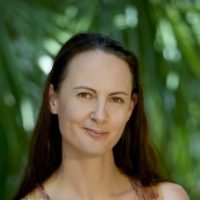
Mia Hoogenboom
Associate Professor, Chief Investigator and Program 3 Leader
James Cook University
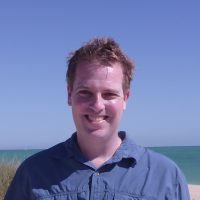
Ryan Lowe
Professor, Chief Investigator and Program 3 Leader
University of Western Australia
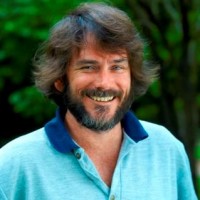
Andrew Baird
Professorial Research Fellow and Chief Investigator
James Cook University
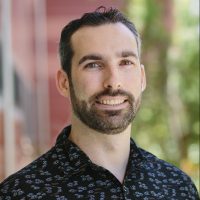
Peter Cowman
Senior Research Fellow in Ecosystem Dynamics
James Cook University

Jennifer Donelson
Associate professor and ARC Future Fellow
James Cook University, Townsville
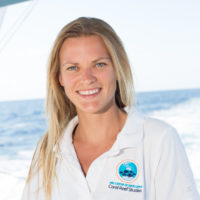
Rebecca Green
Postdoctoral Research Fellow
Perth, Western Australia
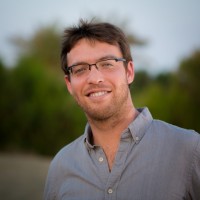
Hugo B. Harrison
ARC and AIMS Joint Research Fellow
James Cook University
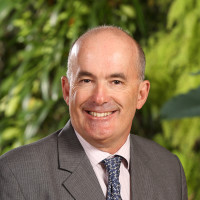
Ove Hoegh-Guldberg
Professor, Deputy Director, and Chief Investigator
University of Queensland
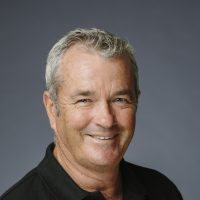
Mike Kingsford
Professor and Chief Investigator
James Cook University
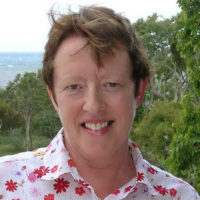
Janice Lough
Senior Principal Research Scientist
Australian Institute of Marine Science
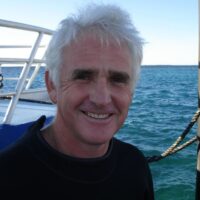
Malcolm McCulloch
Professor, Deputy Director, and Chief Investigator
The University of Western Australia
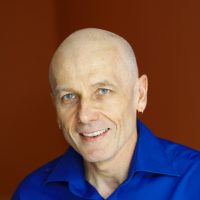
David J. Miller
Professor and Chief Investigator
James Cook University

Jodie Rummer
Professor and Research Associate
James Cook University
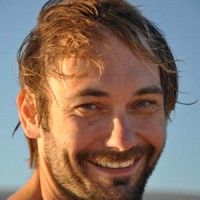
Greg Torda
Senior Research Fellow (DECRA)
James Cook University
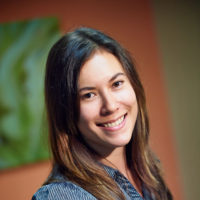
Sue-Ann Watson
Senior Research Fellow
James Cook University
Members of this program work across a range of themes (see introduction). Some are also part of individual research groups (below).
Coral Reef Biogeochemical Laboratories, led by Malcolm McCulloch
 The group based at the University of Western Australia focusses on understanding the effects of climate change and ocean acidification on coral bio-calcification in both shallow-water as well deep-sea reef environments. Research areas include the application and/or development of novel coral-based geochemical proxies including in-situ laser ablation, isotopic and trace-element methods to track the impact of global warming, declining seawater pH across a spectrum of environments (tropical to sub-tropical, shallow water to deep-sea) over different timescales. This is complemented by mesocosm, field studies and modelling of reef environments designed to understand and predict how changing physical/chemical/biological conditions and other environmental variability (e.g. thermal induced stress and land-based interactions such as river runoff) influence coral reef ecosystems.
The group based at the University of Western Australia focusses on understanding the effects of climate change and ocean acidification on coral bio-calcification in both shallow-water as well deep-sea reef environments. Research areas include the application and/or development of novel coral-based geochemical proxies including in-situ laser ablation, isotopic and trace-element methods to track the impact of global warming, declining seawater pH across a spectrum of environments (tropical to sub-tropical, shallow water to deep-sea) over different timescales. This is complemented by mesocosm, field studies and modelling of reef environments designed to understand and predict how changing physical/chemical/biological conditions and other environmental variability (e.g. thermal induced stress and land-based interactions such as river runoff) influence coral reef ecosystems.
Coral Reef Ecology Lab, led by Andrew Baird, Andrew Hoey, and Morgan Pratchett
 Coral reef ecosystems are ecologically and economically important, but are also being rapidly degraded throughout the world. Pratchett, Hoey and Baird work together (along with a large group of graduate students and early career researchers) to explore the dynamics of reef organisms and interactions among key components of reef ecosystems. This research is fundamental to developing effective management strategies to halt and reverse global degradation of reef ecosystems.
Coral reef ecosystems are ecologically and economically important, but are also being rapidly degraded throughout the world. Pratchett, Hoey and Baird work together (along with a large group of graduate students and early career researchers) to explore the dynamics of reef organisms and interactions among key components of reef ecosystems. This research is fundamental to developing effective management strategies to halt and reverse global degradation of reef ecosystems.
Coral Reef Ecosystems Laboratory, led by Ove Hoegh-Guldberg and Sophie Dove
 The Coral Reef Ecosystem (CRE) Laboratory includes a number of Post-docs, PhD students and professional staff. The lab is interested in examining the organisms and processes that underlie the structure and function of coral reef ecosystems. Current projects investigate the effects of climate change at both the reef community and species levels, through a large climate controlled water treatment system on Heron Island. Other projects examine reef metabolism, health, biodiversity, connectivity and species interactions, through the use of surveys, in situ environment and organism measurements and photographs from the Catlin Seaview Survey.
The Coral Reef Ecosystem (CRE) Laboratory includes a number of Post-docs, PhD students and professional staff. The lab is interested in examining the organisms and processes that underlie the structure and function of coral reef ecosystems. Current projects investigate the effects of climate change at both the reef community and species levels, through a large climate controlled water treatment system on Heron Island. Other projects examine reef metabolism, health, biodiversity, connectivity and species interactions, through the use of surveys, in situ environment and organism measurements and photographs from the Catlin Seaview Survey.
Reef fish ecology and climate change, led by Philip Munday
 Professor Munday has broad interests in the population, community and behavioural ecology of reef fishes. His research group focuses on understanding and predicting the impacts that climate change and ocean acidification will have on populations and communities of marine fishes, both directly through changes in the physical environment and indirectly through effects on coral reef habitat. Using a range of laboratory and field experiments he is investigating the effects of climate change and ocean acidification on reef fish populations and testing their capacity for acclimation and adaptation to a rapidly changing environment. A major research focus is understanding how exposure to higher temperatures and carbon dioxide levels in one generation affects the ability of subsequent generations of fish to tolerate these conditions (transgenerational acclimation).
Professor Munday has broad interests in the population, community and behavioural ecology of reef fishes. His research group focuses on understanding and predicting the impacts that climate change and ocean acidification will have on populations and communities of marine fishes, both directly through changes in the physical environment and indirectly through effects on coral reef habitat. Using a range of laboratory and field experiments he is investigating the effects of climate change and ocean acidification on reef fish populations and testing their capacity for acclimation and adaptation to a rapidly changing environment. A major research focus is understanding how exposure to higher temperatures and carbon dioxide levels in one generation affects the ability of subsequent generations of fish to tolerate these conditions (transgenerational acclimation).
Ecological and Conservation Physiology of Fishes (Rummer Lab), led by Jodie Rummer
 With over 400 million years of evolution, the fishes represent one of the most successful adaptive radiation events in vertebrate history. Yet, we do not fully understand how fish are responding to environmental and human-induced stress and their capacity to adapt to global climate change. The physiological changes that fish make in response to stress in order to maintain performance and the significance of these changes to over daily, seasonal, geographic, developmental, and generational scales is the focus the research in the Rummer Lab.
With over 400 million years of evolution, the fishes represent one of the most successful adaptive radiation events in vertebrate history. Yet, we do not fully understand how fish are responding to environmental and human-induced stress and their capacity to adapt to global climate change. The physiological changes that fish make in response to stress in order to maintain performance and the significance of these changes to over daily, seasonal, geographic, developmental, and generational scales is the focus the research in the Rummer Lab.
Physioshark Project led by Jodie Rummer

The Physioshark project, led by Dr. Jodie Rummer from James Cook University in Australia, investigates how climate change impacts the physiology of newborn and juvenile reef sharks. Sharks that are born today represent adult shark populations of the future. Understanding how human and environmental impacts affect these sharks is crucial knowledge for developing effective shark conservation strategies.
New DNA techniques are being used to understand how coral reacted to the end of the last ice age in order to better predict how they will cope with current changes to the climate. James Cook Univer
A new study on the effects of climate change in five tropical countries has found fisheries are in more trouble than agriculture, and poor people are in the most danger. Distinguished Profess
James Cook University researchers have found brightly coloured fish are becoming increasingly rare as coral declines, with the phenomenon likely to get worse in the future. Christopher Hemingson, a
Researchers working with stakeholders in the Great Barrier Reef region have come up with ideas on how groups responsible for looking after the reef can operate more effectively when the next bleaching
Abstract: As marine species adapt to climate change, their heat tolerance will likely be under strong selection. Individual variation in heat tolerance and its heritability underpin the potential fo
Abstract: The Reef Ecology Lab in KAUST’s Red Sea Research Center explores many aspects of movement ecology of marine organisms, ranging from adult migrations to intergenerational larval dispersal
Abstract: Macroalgal meadows are a prominent, yet often maligned component of the tropical seascape. Our work at Ningaloo reef in WA demonstrate that canopy forming macroalgae provide habitat for ad
Abstract: Sharks are generally perceived as strong and fearsome animals. With fossils dating back at least 420 million years, sharks are not only majestic top predators but they also outlived dinosa
Abstract: Connectivity plays a vital role in many ecosystems through its effects on fundamental ecological and evolutionary processes. Its consequences for populations and metapopulations have been
Abstract: Evolution of many eukaryotic organisms is affected by interactions with microbes. Microbial symbioses can ultimately reflect host’s diet, habitat range, and even body shape. However, how
Abstract: The past few years have seen unprecedented coral bleaching and mortality on the Great Barrier Reef (GBR) but the consequences of this on biodiversity are not yet known. This talk will expl